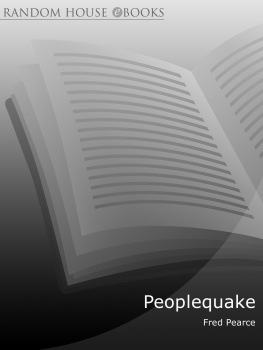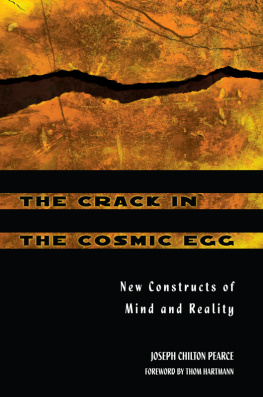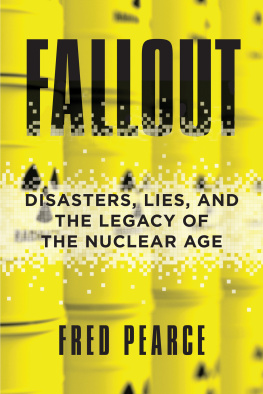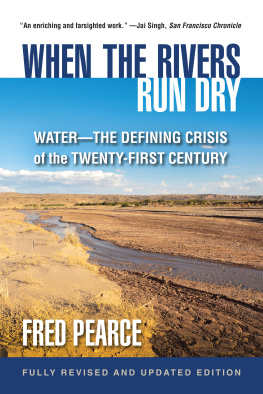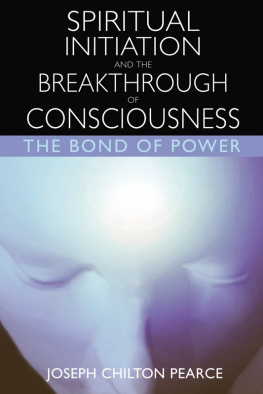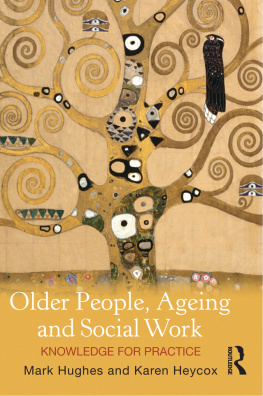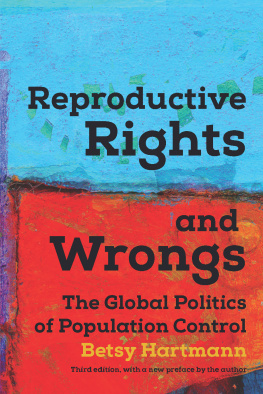Pearce - Peoplequake: mass migration, ageing nations and the coming population crash
Here you can read online Pearce - Peoplequake: mass migration, ageing nations and the coming population crash full text of the book (entire story) in english for free. Download pdf and epub, get meaning, cover and reviews about this ebook. City: London, year: 2011, publisher: Transworld;Eden Project, genre: Politics. Description of the work, (preface) as well as reviews are available. Best literature library LitArk.com created for fans of good reading and offers a wide selection of genres:
Romance novel
Science fiction
Adventure
Detective
Science
History
Home and family
Prose
Art
Politics
Computer
Non-fiction
Religion
Business
Children
Humor
Choose a favorite category and find really read worthwhile books. Enjoy immersion in the world of imagination, feel the emotions of the characters or learn something new for yourself, make an fascinating discovery.
Peoplequake: mass migration, ageing nations and the coming population crash: summary, description and annotation
We offer to read an annotation, description, summary or preface (depends on what the author of the book "Peoplequake: mass migration, ageing nations and the coming population crash" wrote himself). If you haven't found the necessary information about the book — write in the comments, we will try to find it.
Pearce: author's other books
Who wrote Peoplequake: mass migration, ageing nations and the coming population crash? Find out the surname, the name of the author of the book and a list of all author's works by series.
Peoplequake: mass migration, ageing nations and the coming population crash — read online for free the complete book (whole text) full work
Below is the text of the book, divided by pages. System saving the place of the last page read, allows you to conveniently read the book "Peoplequake: mass migration, ageing nations and the coming population crash" online for free, without having to search again every time where you left off. Put a bookmark, and you can go to the page where you finished reading at any time.
Font size:
Interval:
Bookmark:
About the Book
Wherever we look, population is driving the most toxic issues on the political agenda:
- Chinas billions are undermining all efforts to halt climate change
- Terrorists lurk in refugee camps across the Middle East
- AIDS seeps from African townships
- Migrants are flooding Europe, swamping public services yet their labour keeps these same services from grinding to a halt
But here is something you may not know. The population bomb is being defused. Half the worlds women are having two children or fewer. Within a generation, the worlds population will be falling. And we will all be getting very old.
This groundbreaking book explores how we got here, and where we are going. Do we face an environmental apocalypse? Or might the wrinklies, led by a new breed of tribal elders, create a better, happier future?
Brilliant, heretical, honest, Fred Pearce confronts our demographic demons.
Contents
PEOPLEQUAKE
Mass Migration, Ageing Nations and the Coming Population Crash
FRED PEARCE
Preface
I was brought up in Lenham, a village in the middle of Kent in England. On my final day at the village primary school, I walked down Honeywood Road, where I lived, and past the imposing Honeywood House to the vicarage, where I received a small cash award, the Honeywood prize. It paid out from a trust set up more than 300 years before by the villages most famous inhabitant, Mary Honeywood. The money was meant to buy tools for whatever trade I chose. A carpenter, say, or a blacksmith. So I bought a few pens and a compass and protractor for my future studies, and forgot all about it. Only later did I discover that Mary Honeywood is most famous not for her house or her road or her prize but for her fecundity. When she died, in 1620 at the age of 93, and her body was placed in Lenham churchyard, Mary Honeywood left behind 16 children, 114 grandchildren, 228 great-grandchildren and nine great-great-grandchildren a total progeny of 367. So far as I can establish, that remains a world record for one woman in her lifetime. I suspect it is a record that will stand for ever.
Introduction
Demography is destiny. But not always in the ways we imagine. It underlies much of our world, shifting the tectonic plates on which our civilization is built. Never has that been more true than today. Wherever we look, population issues are among the most toxic headline-grabbers. From Gaza to Grozny and Rwanda to Afghanistan, baby booms are blamed for war and genocide. Festering slums burst into tribal violence in Kenya. Teenage terrorists lurk in refugee camps and overcrowded madrassas. Migrants from poor, overbreeding states are flooding Europe and North America. Overpopulation is the unspoken driver of environmental destruction. Millions of environmental refugees will soon be fleeing from spreading deserts and drowned deltas, as Chinas billion-plus inhabitants undermine all efforts to halt climate change.
The stats seem scary, too. The worlds population is approaching seven billion, four times what it was a century ago. Never have there been so many mothers, and with half the people in some countries under 16 years old there are billions more baby-makers in the pipeline. Meanwhile, the worlds masses are on the move. Some 200 million people go to bed in a country different from the one they were born in.
No wonder the language is bleak. Dickensian. Malthusian. Its Sodom and Gomorrah. Its Armageddon. We fear an overpopulated world teeming with the dispossessed and the alienated, the fanatical and fascist, the wetbacks and the snakeheads, the Humvee-driving super-polluters and the dirt-poor deforesters. Surely, we are racing to demographic disaster.
And yet slamming on the brakes seems almost as dangerous. For meanwhile, the rise of the wrinklies is looming. We are all living longer, healthier lives. Life expectancy has doubled since the 1950s. Back when I was born, 150 babies out of every thousand died before their first birthday. I could have been one of them. Now only 50 die. Should we cherish or fear this? Is good luck for the worlds babies bad luck for the planet?
It is sometimes said that more than half of all the people who have lived on the Earth are alive today. This is nonsense. Just under seven billion of the total human roll call of 100 billion are alive today. But what may well be true is that half of all the people who have ever managed to reach the age of 65 are alive today.
And here is something you may not have guessed. Something that may save us all. The population bomb is being defused. Only gradually, because the children of the greatest population explosion in history are still mostly of childbearing age, but it is happening. They may be having seven children in Mali, and six in Afghanistan, but half the worlds women are now having two children or fewer. Not just in rich countries but in Iran and parts of India, Burma and Brazil, Vietnam and South Africa. Mothers today have fewer than half as many offspring as their own mothers. This is happening mostly out of choice and not compulsion. Women have always wanted freedom, not domestic drudgery and the childbirth treadmill. And, now that most of their babies survive to adulthood, they are having it.
This book is the story of the peoplequake, the dramatic convulsion of the worlds population that began with the industrial revolution and continues today. It is the story of how the tectonic plates of human population are shifting, and what this means for us and future generations. We see those plates on the move in the mosques of Iran and the slums of Mumbai; the vodka shops of Moscow and the killing fields of Rwanda; the demographic battlegrounds of Israel and the laid-back saunas of Stockholm.
If you are over 45, you have lived through a period when the world population has doubled. No past generation has lived through such an era and probably no future generation will either. But if you are under 45, you will almost certainly live to see a world population that is declining for the first time since the Black Death almost 700 years ago. And it may happen soon. Demographers predict that, as during the great depression of the 1930s, the recent economic downturn will encourage people to give up on babies.
The future will be a different world in other ways, too. The average citizen of the world today is under 30. Before he or she dies, the average will probably be over 50. Book your places now for the global old folks home. The quake is not just about numbers. It is about age and sex and womens rights and war and migration. About the rise and fall of nations and, some fear, the end of the family. It is about environmental limits and climate change and the fertility of soils and minds.
The story opens with Bob Malthus, a morose 18th-century vicar spooked by two revolutions the French and the industrial counting his parish flock and imagining our demographic doom. From the Irish potato famine to Rwanda, it follows the evolution of Malthusian fears. It tracks the terrifying logic of the 20th-century eugenics scientists and the fears of their birth-controlling successors who imposed coercive family planning in China, India and elsewhere. It catches up with the new centurys migrants and refugees and pensioners and, diminishing in number though they are in many places, the babies of our planet.
It explores how demography drove the rise of the Asian tiger economies and Chinas economic miracle and how it will soon undermine them both. It charts shrinking Europe, and how by mid-century Russia could have fewer people than Yemen. It follows the declining power of Catholic and Islamic clerics alike to lay down the law in the bedroom. It takes the political temperature of the youth bulge creating mayhem in the Middle East.
Next pageFont size:
Interval:
Bookmark:
Similar books «Peoplequake: mass migration, ageing nations and the coming population crash»
Look at similar books to Peoplequake: mass migration, ageing nations and the coming population crash. We have selected literature similar in name and meaning in the hope of providing readers with more options to find new, interesting, not yet read works.
Discussion, reviews of the book Peoplequake: mass migration, ageing nations and the coming population crash and just readers' own opinions. Leave your comments, write what you think about the work, its meaning or the main characters. Specify what exactly you liked and what you didn't like, and why you think so.

